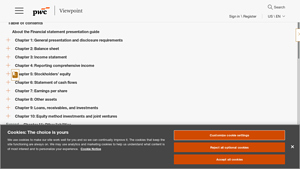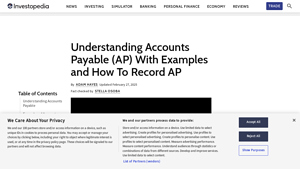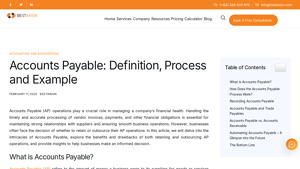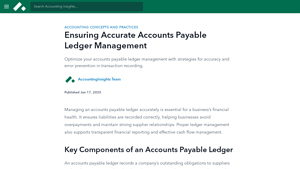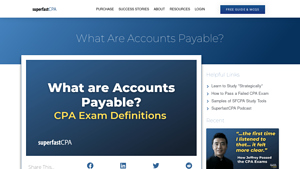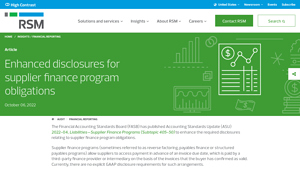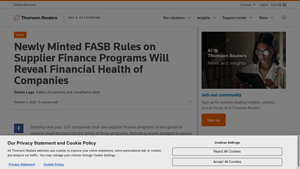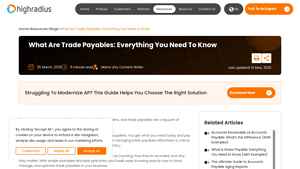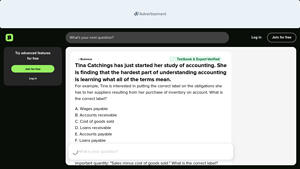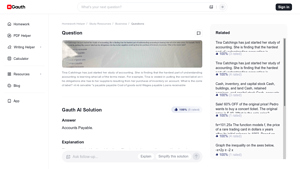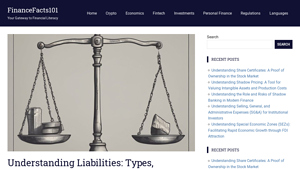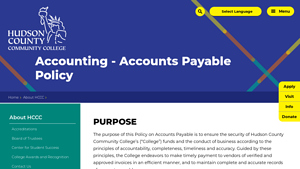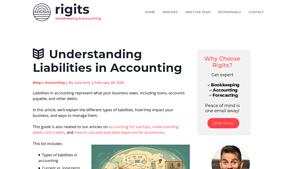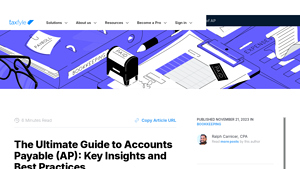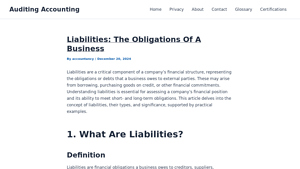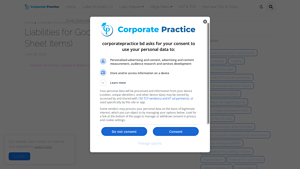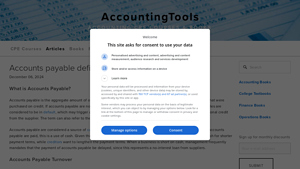Top Companies in Obligations to Suppliers of Goods
Are you struggling to find reliable suppliers for your manufacturing needs? You’re not alone! Many businesses face the daunting task of choosing the right factory, and the stakes couldn’t be higher. A top-notch supplier can mean the difference between success and setbacks in your production line. Imagine having a partner who not only delivers quality goods but also understands your unique requirements and timelines. This can streamline your operations and boost your bottom line.
Curious about which suppliers can meet your expectations? Join us as we explore the top 30 obligations to look for in suppliers. Discover how these key factors can elevate your manufacturing process. Let’s dive in!
Top 18 Obligations To Suppliers Of Goods Accounting Manufacturers
Viewpoint – Supplier Finance Solutions
Domain: viewpoint.pwc.com
Registered: 2001 ( 24 years )
Introduction: Supplier finance programs, also known as reverse factoring, payables finance, or structured payables arrangements, allow buyers to provide their suppliers access to payment from a third-party finance provider in advance of the invoice due date.
Investopedia – Financial Education and Resources
Bestarion – Accounts Payable Management Services
Domain: bestarion.com
Registered: 2018 ( 7 years )
Introduction: Accounts Payable (AP) services for managing vendor invoices, payments, and financial obligations.
Accounting Insights – Accounts Payable Automation Solutions
Domain: accountinginsights.org
Registered: 2024 ( 1 years )
Introduction: Accounts payable ledger management services and automation tools.
Superfastcpa – Accounts Payable Solutions
Domain: superfastcpa.com
Registered: 2014 ( 11 years )
Introduction: Accounts payable (AP) is an accounting term that represents a company’s financial obligations to its suppliers or creditors for goods and services received on credit.
Rsmus – Supplier Finance Solutions
Domain: rsmus.com
Registered: 2014 ( 11 years )
Introduction: Supplier finance program obligations and enhanced disclosures related to them.
Thomson Reuters – Tax and Accounting Solutions
Domain: tax.thomsonreuters.com
Registered: 2007 ( 18 years )
Introduction: Thomson Reuters offers a range of tax and accounting solutions for accounting firms, corporations, and governments, including software for audit, tax compliance, financial reporting, and supplier finance programs.
HighRadius – Accounts Receivable Automation Solutions
Brainly – Educational Solutions for Homework Help
Gauthmath – Accounting Learning Solutions
Financefacts101 – Liabilities Management Solutions
Domain: financefacts101.com
Registered: 2024 ( 1 years )
Introduction: Liabilities represent obligations or debts owed by a business or individual, which can include current liabilities like wages payable and accounts payable, as well as long-term liabilities such as mortgages and bonds payable.
Hccc – Accounts Payable Management Solutions
Accountingtermslexicon – Financial Obligation Insights
Domain: accountingtermslexicon.com
Registered: 2024 ( 1 years )
Introduction: Obligations refer to commitments undertaken by individuals or entities to adhere to contract terms or repay debts, critical in legal and financial contexts.
Rigits – Accounting Liability Management Solutions
Taxfyle – Accounts Payable Management Solutions
Domain: taxfyle.com
Registered: 2015 ( 10 years )
Introduction: Taxfyle offers accounts payable services that streamline the management of a company’s payables, ensuring timely payments and accurate financial reporting.
Auditingaccounting – Financial Liability Assessment Solutions
Domain: auditingaccounting.com
Registered: 2024 ( 1 years )
Introduction: Liabilities are financial obligations a business owes to creditors, suppliers, employees, or other entities, essential for assessing a company’s financial position.
Corporate Practice BD – Supplier Liability Management Solutions
Domain: corporatepracticebd.com
Registered: 2021 ( 4 years )
Introduction: Liabilities for Goods Supplied typically refer to amounts owed by a company to its suppliers for goods that have been purchased but not yet paid for.
AccountingTools – Accounts Payable Management Solutions
Domain: accountingtools.com
Registered: 2000 ( 25 years )
Introduction: Accounts payable is the aggregate amount of short-term obligations to pay suppliers for products and services purchased on credit, and it also refers to the department that processes these payables.
Category Information
The category of “obligations to suppliers of goods accounting” encompasses the financial responsibilities that businesses have towards their suppliers for goods received. This includes accounts payable, which represents the amounts owed for products or services purchased on credit. Properly managing these obligations is crucial for maintaining healthy supplier relationships and ensuring smooth operational continuity. Accurate accounting for supplier obligations is significant as it affects a company’s cash flow, financial statements, and overall financial health.
By tracking these liabilities diligently, businesses can optimize their payment schedules, negotiate better terms, and avoid potential disruptions in supply. Additionally, this accounting practice supports compliance with financial reporting standards, providing stakeholders with a clear view of the company’s obligations and financial position.
Application Information
Obligations to suppliers of goods accounting is crucial across various industries, particularly in manufacturing, retail, and wholesale distribution. In the manufacturing sector, companies rely on accurate tracking of accounts payable to manage their supply chain effectively, ensuring timely payments to suppliers and maintaining optimal inventory levels. This helps in avoiding production delays and fostering strong supplier relationships. In retail and wholesale, businesses use these accounting practices to monitor purchase orders and manage inventory costs.
By keeping precise records of obligations to suppliers, companies can analyze their cash flow and negotiate better terms with suppliers, thereby enhancing profitability. Additionally, in the food and beverage industry, compliance with supplier obligations ensures quality and safety standards are met, which is vital for regulatory adherence and customer satisfaction. Overall, effective management of supplier obligations is essential for financial health and operational efficiency in these sectors.
Production Process Information
The production process for obligations to suppliers of goods accounting involves several key steps that ensure accurate tracking and management of supplier transactions. First, businesses start by establishing clear agreements with their suppliers, outlining the terms of the goods or services to be provided, including delivery schedules and payment terms. This step is crucial for setting expectations and maintaining good relationships. Next, the company receives and inspects the goods upon delivery.
This ensures that the products meet the agreed-upon specifications and quality standards. After verifying the goods, the company records the transaction in its accounting system, creating an obligation to pay the supplier. Finally, when payment is due, the company processes the payment, completing the cycle. Throughout this process, effective communication and accurate record-keeping are essential to maintain transparency and avoid disputes.
Related Video
Frequently Asked Questions (FAQs)
1. How do I start finding potential suppliers for my goods?
To begin your search for potential suppliers, consider using online directories such as Alibaba, ThomasNet, or Global Sources. These platforms allow you to browse through a vast array of manufacturers and wholesalers. Additionally, attending trade shows and industry exhibitions can help you meet suppliers face-to-face and see their products firsthand. Networking within your industry can also lead to recommendations for reliable suppliers.
2. What criteria should I use to evaluate a supplier?
When evaluating a supplier, consider factors such as their production capacity, quality control processes, and reputation in the industry. Look for reviews or testimonials from other customers, and check if they have relevant certifications that ensure quality standards. It’s also important to assess their communication responsiveness and willingness to collaborate on your specific needs, as a good relationship can significantly impact your business success.
3. How can I ensure the quality of goods from a supplier?
To ensure quality, request samples of the products before placing a larger order. This allows you to check for quality and consistency. Additionally, consider visiting the supplier’s factory to see their production processes firsthand. Establishing clear quality standards and having them documented in your contract can also help maintain the quality you expect. Regular communication and feedback after the initial order can further ensure ongoing quality.
4. What are the common payment terms I should expect from suppliers?
Common payment terms vary by supplier and region but often include options like a deposit upfront (usually 30% to 50%) with the balance due upon delivery or after inspection. Some suppliers may offer net payment terms, where payment is due within a set number of days after receiving the goods. It’s important to negotiate terms that work for both parties and to understand the risks associated with each option.
5. How can I build a long-term relationship with my supplier?
Building a long-term relationship with your supplier involves clear communication, mutual respect, and understanding each other’s business needs. Regularly check in with your supplier, provide constructive feedback, and acknowledge their efforts when they meet or exceed your expectations. Consider collaborating on product development or offering them a larger share of your business if they consistently deliver quality and service. This fosters loyalty and can lead to better pricing and priority service in the future.
